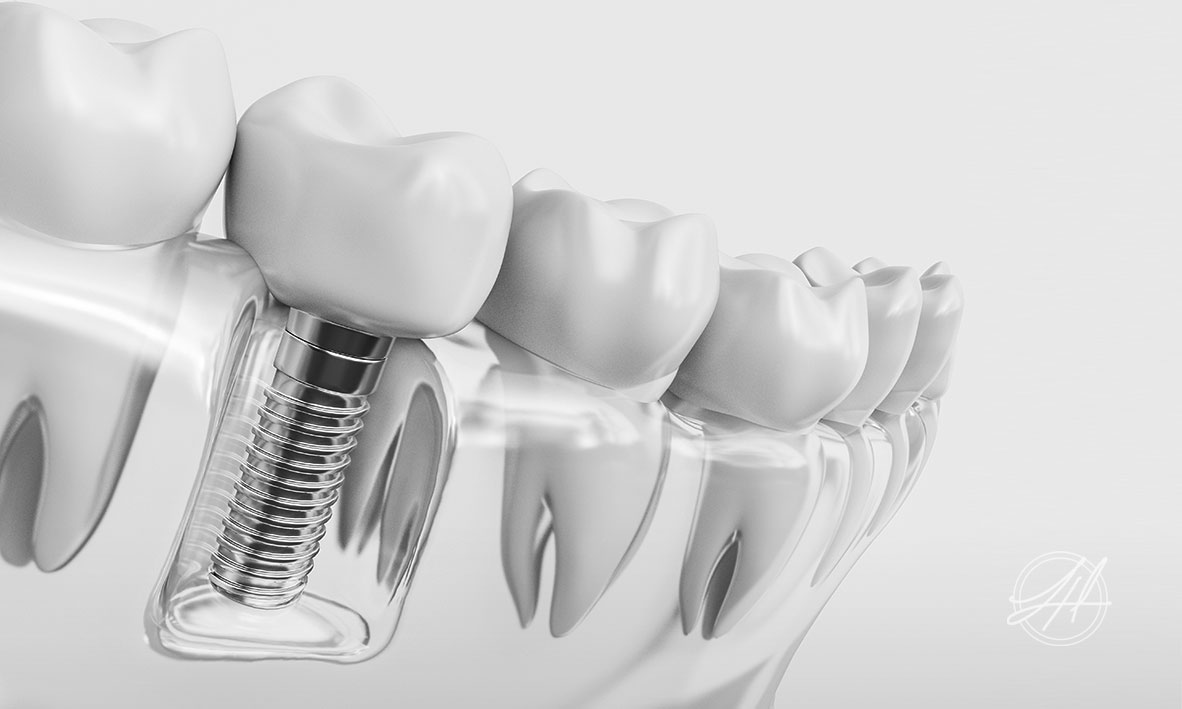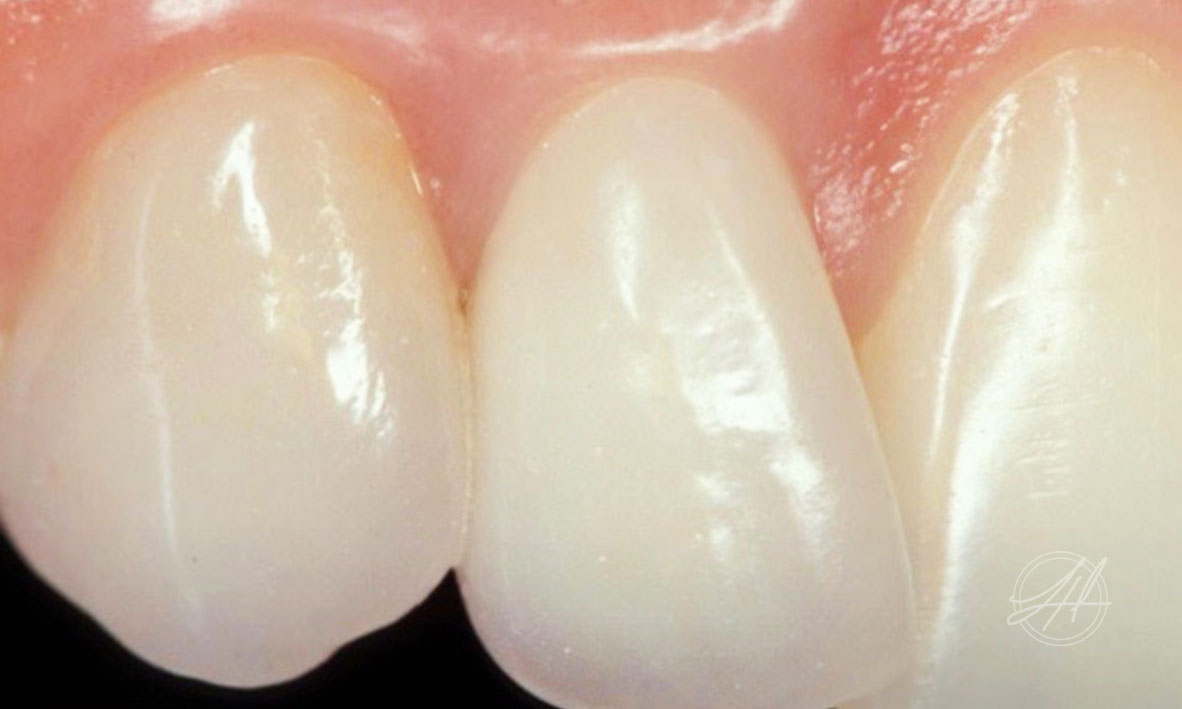Dental Implants
Dental implants are used when teeth, or a set of teeth, are missing. This is done by inserting a biocompatible titanium screw in to the gum, in place of the root of the missing teeth. The screw sits in place of where the missing tooth’s roots were and has a crown/ bridge (artificial tooth) attached to the top of it.
Over time, bone grows around the implant, which helps to hold it in place long-term. Each crown that is attached to the screw is specially designed to look like your other teeth. This is achieved by matching the size, shape and colour of your other teeth. Dental implants are also used to hold a dental bridge or dentures in place.
Implants Suitability
The jawbone is healthy and fully grown.
There are no conditions present that affect bone healing.
There is no gum disease present or has been appropriately treated, monitored and controlled to be stable.
The procedure
This specialist procedure is performed with the use of magnifying loupes or microscopy and additional surgical lights. Surgical miniaturised dental instruments are also used.
Placement
After removal of any damaged teeth through a minimally invasive procedure, or in the instance there is no tooth, the gum is surgically incised to allow the preparation of the bone and place the implant. The implant is then placed in to the jawbone and covered while the bone fuses to the implant via a process known as osseointegration.
Crown
After several months have past, when the osseointegration process is complete, a second operation may be required to uncover the top of the implant and connecting an abutment to the implant that is integrated in the bone. Finally, the crown or bridge is fitted.
FAQs
Is the procedure painful?No. During the procedure you will be under the appropriate level of pain management and sedation. Following surgery, mild discomfort is controlled with conventional pain medication. In case of implant placement with simultaneous advanced bone augmentation, the procedure is carried out under sedation or with the use of happy gas which often provide favourable relief in both pain and anxiety.
How long do dental implants last?
Recent studies indicate dental implants can last from 10 to 30 years without issues. Regular and very careful maintenance is required to ensure good function for the longest possible time.
I have bone loss, can I still have a dental implant?
In most cases, yes. Bone grafting is now a routinely performed treatment in order to promote bone grow and allowing for a dental implant.
How do you take care of dental implants?
The crown attached to the screw from your implant requires regular maintenance, just like regular teeth. However, their demand for attendance is higher than your natural teeth. If well-treated cases, they are very successful and have long longevity. Yet, if not appropriately cared for, they are subjective to Peri-implant Diseases and often deteriorate at a mach faster rate than natural dentition. Regular dental visits are recommended 2-4 times per year to maintain great hygiene. Careful and consistent home oral hygiene including interdental brushing is essential for the long-term function of dental implants.
Any surgical or invasive procedure carries risks. Before proceeding with a surgical or invasive procedure, you should seek opinion from an appropriately qualified health practitioner.



